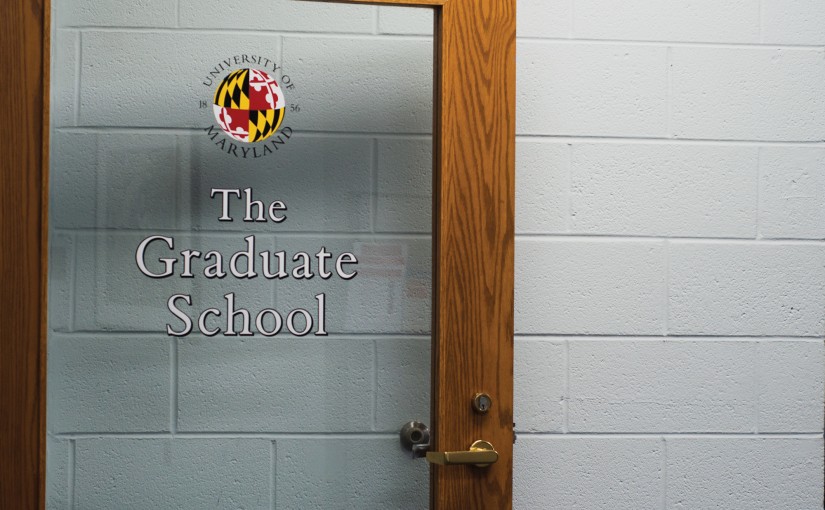Views expressed in opinion columns are the author’s own.
In an early April interview with NPR, University of Maryland President Wallace Loh revealed his great boon to graduate students: a developing proposal to increase stipends for graduate student assistant. Uncomfortably, that radio announcement was the first time the Graduate Student Government had heard of it.
On Tuesday, the interim dean officially announced that graduate students would receive a 2 percent pay raise starting next year. While graduate student groups were notified in advance of the actual increase, they voiced frustration that they weren’t involved earlier in the process, with one graduate student calling it “yet another decision that’s handed down by the university to graduate students.”
[Read more: Graduate assistants will receive a 2 percent stipend increase next year]
This isn’t the first time graduate students have grappled with the administration’s lack of transparency when making decisions that affect them. In September, Loh dropped another surprise announcement congratulating the new graduate school dean in a single throwaway line in a mass email. In February, the graduate school failed to share the initial results of their quality of life survey with the Graduate Student Government, despite claiming it was “administered in conjunction” with them.
These incidents create a one-sided dynamic between administration and graduate students, and the lack of transparency hurts them both. Graduate students feel unsupported by this university and don’t have the channels to communicate and address their problems. As they grapple with financial insecurity, overwork, restrictive university policies and the confusions of bureaucracy, they can’t comfortably do what they came here to do. Their academic work suffers, their quality of life suffers and this university’s reputation suffers.
Many graduate student concerns came to light with the 2017 survey, but even that wasn’t a fair way to marshal feedback. The survey was the first one conducted on the graduate student population since 2010, and the results weren’t compiled and released for seven months after the questioning period. There was no timely response to the pressing issues affecting this large demographic — issues that had been pressing for years — and for more than a year, there wasn’t even an indication that graduate concerns were heard.
With this recent stipend increase, it’s clear this university is trying to improve the experiences of its graduate student population. However, because of how poorly these new policies get communicated, they don’t have as positive an impact as they could. Graduate students clearly want to be part of the conversation when administration tries to change things for their benefit — otherwise, these changes aren’t responsive, just prescriptive.
[Read more: Grad students say their voices weren’t heard in a quality of life survey]
Moreover, graduate students don’t get the same opportunities to organize and build community as undergraduates. Their time and status restrict them from getting more involved on the campus, and their specialization in their subjects keeps them from coming together in the way masses of undergraduates with the same majors do. They should have clear and open channels of communication with this university’s administration, because they often don’t have the time, resources or support to rally around specific issues.
This university should be actively reaching out to graduate students, not making them fight to be heard. The first issue they need to tackle isn’t pay raises or policy changes — it’s changing the established culture of non-transparency.
Sona Chaudhary, opinion editor, is a sophomore English and geology major. She can be reached at sonachaud@gmail.com.



